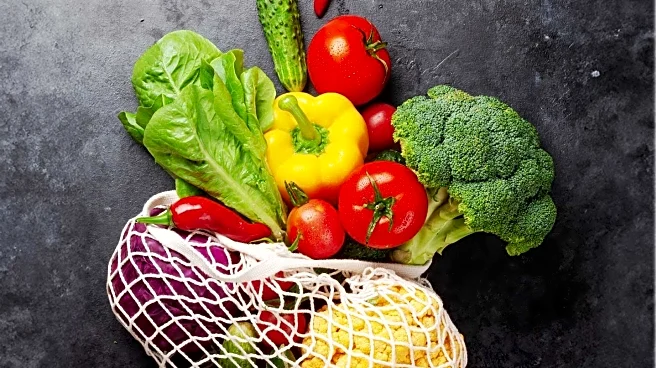What's Happening?
The Upcycled Food Association is advocating for the transformation of by-products, surplus food, and food waste into new, high-quality products for human consumption. This process, known as upcycling,
involves taking leftover ingredients, such as coffee grounds or spent grain, and converting them into new products like flour or snacks. Upcycling is gaining traction as a crucial strategy for building a sustainable food future, aiming to alleviate the food industry's environmental impact by repurposing existing resources. The association highlights the benefits of upcycling, including reducing waste, lowering CO2 emissions, and decreasing land use, thereby contributing to a greener future.
Why It's Important?
Upcycling in the food industry is significant as it addresses the global issue of food waste, which contributes to approximately 8% of greenhouse gas emissions. By repurposing food by-products, upcycling reduces landfill waste and supports a more sustainable food system. This practice not only conserves resources but also offers innovative solutions that benefit both people and the planet. The Environmental Protection Agency emphasizes that preventing food waste at the source is the most effective way to reduce environmental impacts and promote sustainability.
What's Next?
The Upcycled Food Association is working to increase consumer awareness and acceptance of upcycled food products. By integrating upcycled ingredients into food production seamlessly, companies can drive consumer demand for sustainable products. The association's efforts include certifying upcycled products to make it easier for consumers and food producers to choose ingredients with a positive environmental impact.
Beyond the Headlines
Upcycling in food is not just a trend but a meaningful approach to sustainability. It encourages creative thinking and innovation, challenging individuals and businesses to look at everyday items from a different perspective. This practice fosters a culture of ingenuity and resourcefulness, contributing to a circular economy.










